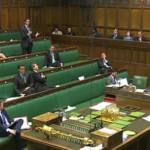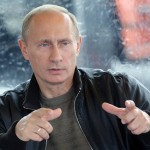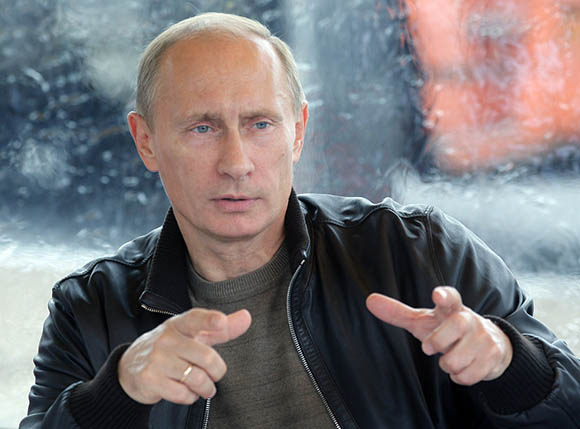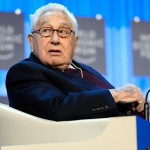Iraq: Coalition Against ISIL
Written Transcript:
Rory Stewart (Penrith and The Border, Conservative)
Members of the House have laid out, with enormous ingenuity, the complexity of this situation; we have heard about everything from Turkey almost to Turkmenistan. In the end, however, this is a relatively simple motion and we should support the Prime Minister, the Deputy Prime Minister and the Leader of the Opposition in the decision that they are making, for two reasons: one is that air strikes, in and of themselves, are a sensible response to the problem that we face; and the second is the caution and the focus that they bring to the issue of defining the wider mission.
Air strikes are sensible because, as I discovered with my hon. Friend Nadhim Zahawi when we stood on the front line looking at the Islamic State, it is clear that essentially what had happened is that an advance across open desert territory, using Humvees and artillery, had been driven back quite easily with air strikes. Those US air strikes of three or four weeks ago achieved the result of preventing people from taking Irbil, and of ensuring that 450,000 refugees currently located inside Kurdistan were protected from the advance of the Islamic State. If nothing else is achieved, that containment is worth while, and the Royal Air Force’s participation in that process would be not only legal but moderate. It would be a reasonable undertaking, not only to defend our troops but to achieve an important humanitarian objective.
Richard Benyon (Newbury, Conservative)
Does my hon. Friend therefore disagree with George Galloway who said that this is a force that cannot be contained by air attack because it has no presence on the ground? My hon. Friend’s experience would rather suggest the opposite.
Rory Stewart (Penrith and The Border, Conservative)
That is a very good question. The answer, of course, is that outside the heartland of the Islamic State, which is basically the Sunni areas of eastern Syria and western Iraq, it is very vulnerable. When it moves across open terrain towards Shi’a-controlled areas around Baghdad or into Kurdistan, it is out miles into the desert. It has nobody to move among. This idea that George Galloway presented of it swimming among the population makes sense only in the areas around the Sunni triangle—Mosul, Deir ez-Zor, Raqqa—but does not make any sense in the Kurdish and the Shi’a areas. So the notion of containing through air strikes is sensible.
The second issue—because I think almost everybody in the House has agreed to vote for these air strikes—is the much bigger issue of destroying the Islamic State. Here, what has been very impressive in this debate is the caution that has been shown in making promises about our ability to do that. We have been here before. These people whom we are fighting in western Iraq are very, very similar to al-Qaeda in Iraq, whom we fought between 2007 and 2009. We are facing an increased, exaggerated version of the same problem.
Problem No. 1 is that we do not control the borders. That is most obvious in relation to Syria, but we also have a problem with Turkey. Problem No. 2 is that there is no trust currently among the Sunni population in the Government in Baghdad. They will find it very difficult—even more difficult than they did in 2007—to trust us again. The third problem is that there is very limited will among the Iraqi army to get into those areas. The Shi’a elements of the Iraqi army will be reluctant to go into Mosul. Kurds will be reluctant to go into Mosul, and even if they could be convinced to do so, they would find it difficult to hold those areas because they would be perceived as an alien occupying force. That means, therefore, that all the hon. and right hon. Members who have spoken about a political solution and a regional solution must be right, but we cannot underestimate the difficulty of that.
Richard Bacon (South Norfolk, Conservative)
What does my hon. Friend say to our hon. Friend Mr Holloway who is quoted in TheGuardian this morning as saying that if we start bombing we are bombing
“exactly the people you are going to need to get rid of Isis.”?
He was referring to the Iraqi Sunni tribesmen.
Rory Stewart (Penrith and The Border, Conservative)
It is a good challenge. The answer is that air strikes need to be focused primarily on containing the advance of the Islamic State territories, and secondly, attacks need to be targeted against terrorist locations. But they cannot be the platform or the foundation of a counter-insurgency strategy. That needs to come from the region.
Just to move towards an end, the fundamental problem is that the Sunni states in the region believe that the Islamic State is an opponent of Iran. This is, in the end,
to do with suspicions between the Sunni states and Iran. As we have heard today, it does not matter how many planes we see flying around, the reality remains that Turkey has not yet committed to engaging in this. This is vital. We still see financial flows coming out of the Gulf directly into the Islamic State. Unless we can find a way of beginning to get the structures in place—structures which involve, first, trust between Iran and those other actors; secondly, some trust from the Sunni people on the ground on the future of their states—we have no future there. That is not a military problem but a diplomatic and political problem. Therefore, the challenge for the Prime Minister and the Deputy Prime Minister is to put those planks in place. If we are serious about these things—and we have the Arabists—we could get the money. People are worried about the budget for this; the Gulf states would write a £50 million or £100 million cheque to finance the teams to do that. It is slow, patient work. We must get out of the black and white mentality of engagement or isolation, surge and withdrawal, and instead show, through a light, long-term diplomatic and political footprint, the seriousness that should define this nation.















